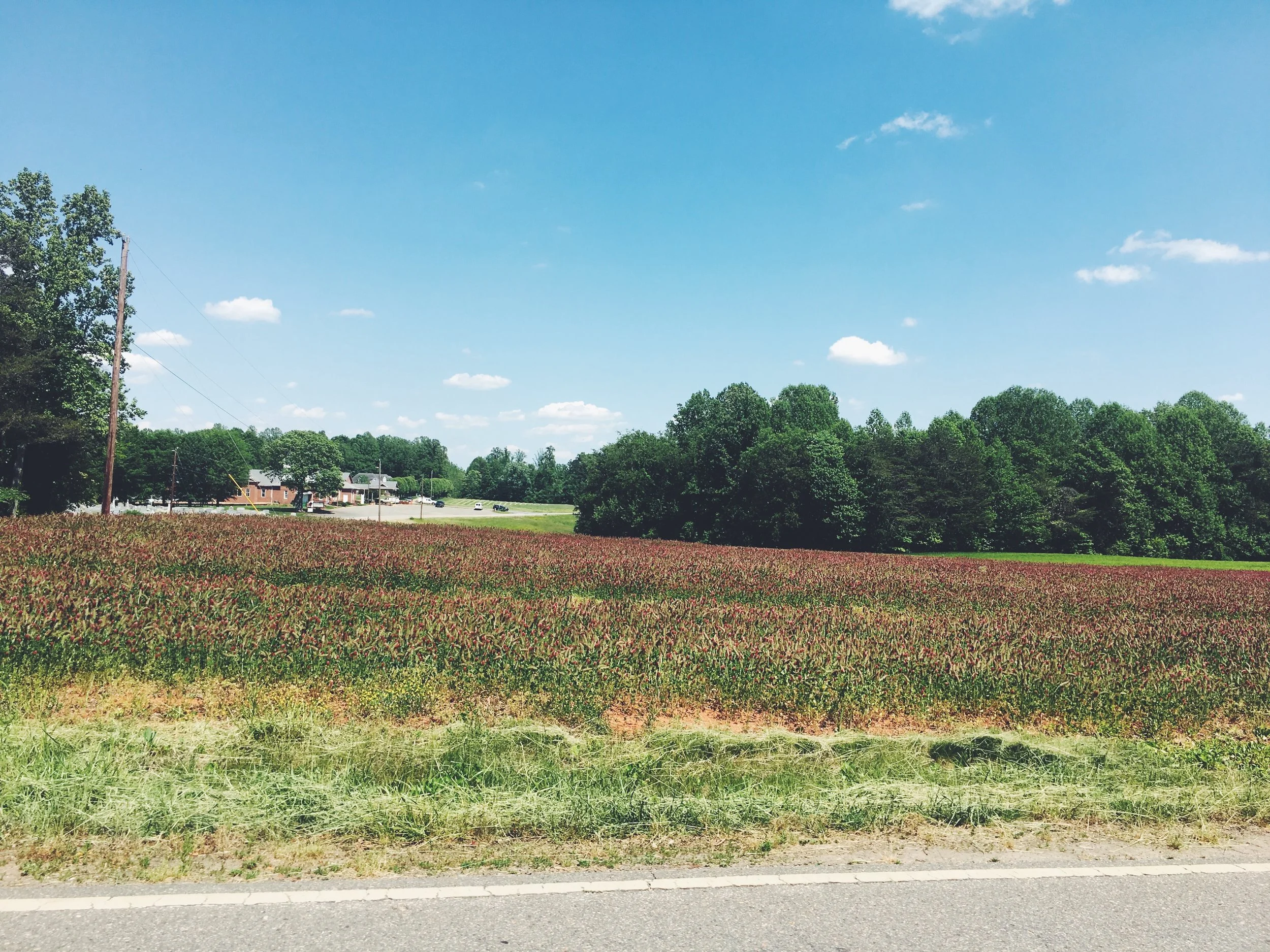other side of the tracks.
summer weathers on as the fallout from july 4th fireworks has settled and the unrelenting sun continues to shine each day. however, I am grateful for the consistency of seasonal rhythms even when other aspects of our lives whirl in less predictable patterns.
one of such consistent occurrences this summer has been the sweet introductions to the community members of yadkin county. from rotary club breakfasts to front porch story-telling, the more I learn the more I am fascinated to see how God’s plan unfolds in this county.
during such gatherings, small or large, we discuss the Shore property, brainstorm ways in which God might desire for this space to be employed for the benefit of the yadkin community, and simply get to know one another. the signature southern kindness and willingness to share has marked each of these conversations, something for which i am deeply grateful.
one of the unavoidable topics throughout our conversations has been the needs faced by individuals in yadkin county. while our approach to community development is asset-based (that is, “what are the strengths of this community and how can we build off those?”) the not so hidden hurts of the county are bound to rare their head in conversation. from the issues of poverty, to race, to shame, to the effect of history upon the land, the neighbors aren’t shy about sharing their hearts and life experiences living in a tight nit, friday night lights kind of town.
earlier this week, a community member made a statement during one of such conversations that (convictingly) struck a chord. he spared the fanciful language and put it plainly:
” you can’t grow up on the wrong side of the tracks here. there weren’t any tracks to begin with.”
i leaned back against the kitchen windows as we sat around the kitchen table and let his statement sink in.
he was right. there truly were not tracks to begin with in Yadkin county.
in the mid 1860s, the Yadkin Valley, Boonville, and Elkin communities were intentionally excluded from the expansion of the railway system due to “incomplete information” while the railroad expanded to other portions of the state.
in return, this left the community trapped in a disadvantaged economy which could not keep pace with other surrounding communities who were privy to the benefits of a functioning railway system for the advancement of their crop sales and subsequent economic prosperity.
maybe understanding poverty is less about finger pointing and more about seeing the whole-picture?
the exclusionary actions of those decision makers during the reconstruction era maintain their ripple effect today as 45% of families of four in the county are considered “low-income” and over 20% of children in the county are living in poverty.
maybe asking the hard questions doesn’t matter to us because we’re afraid of the truth of the matter?
we’re all sharing that same carolina blue sky.
but the poverty faced by yadkin residents isn’t as “obvious” by conventional definitions such as being surrounded by concrete and graffiti and cramped apartment complexes.
it’s the quiet, underlying kind of poverty- equally pervasive- but much more hidden in the grand landscape of things. although less flashy, it’s a deep and unrelenting pain nonetheless. contributor to the Atlantic Alec Macgillis exposited this reality in his 2012 article stating, “The demoralizing effect of decay enveloping the place you live cannot be underestimated.”
pain doesn’t discriminate by skin color or location or background, it’s just a crying shame that often the overlooked individuals struggling near the typical middle class white american are those who share the same color of their skin and a not so different story from them.
maybe we should worry less about pulling up bootstraps and more about listening to another?
kacey musgraves is right, it really is the hurt in every heart-same trailer, different park.
while there are immense challenges to be addressed in the yadkin community due to systemic poverty, individual sin, and the effect of brokenness in the world- the truth gospel is big enough to cover.
prophet isaiah reminds us of God’s faithfulness-
“instead of your shame there shall be a double portion; instead of dishonor they shall rejoice in their lot; therefore in their land they shall posses a double portion they shall have everlasting joy. For I the LORD love justice.”
the Lord has not forgotten the hurting in yadkin county and our prayer is that the Shore home will be a reflection of God’s heart of love for all of us. while we may not all suffer in physical poverty, we do all share in the common struggles that come by virtue of being human. our continued prayer is that through the home of Mr. Wayne Shore the residents of East Bend, Yadkin County, and the larger community would experience the permeating love of the LORD.
there may not be a rail line in yadkin, but there is a life line that is, the good news of Christ.

